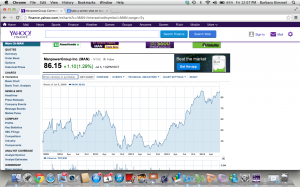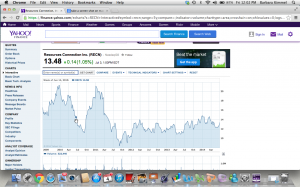
It’s Friday so this is a bit of a light hearted post, sharing a peek behind the curtain and into my life.
I have two sons who, without a doubt, are my proudest accomplishments. My younger son is a senior in high school and heading off to college in a year. This summer, he and has friends have been using my kitchen as a laboratory of sorts. Their goal is to master a recipe for the perfect glass of lemonade. This experiment has been ongoing for almost a month and each batch is getting better. I’ve been appointed “Chief Taste Tester,” a new title to add to my resume! (I’m also the one who mops the floor when they are done.)
Yesterday I was working from my home office, right above the kitchen and heard some quiet conversation below. I went downstairs and found four boys busy perfecting their craft. Each one had a job (washing, juicing, mixing, pouring) and the ongoing conversation had little to do with the task at hand, but instead was focused on the upcoming soccer game on TV. I could not identify a leader or boss. The scene reminded me of a well-rehearsed Broadway show. All the actors came together naturally with no missteps and nobody shouting orders.
These boys have known each other since kindergarten and have grown up together as friends. What do they have in common?
- To start with, lots of history, similar demographics, and years to build trust
- Strong family values
- There’s not a single female among their siblings
- None are the first-born.
Perhaps these similar attributes don’t have a thing to do with their ability to work together in such a natural way, but my guess is some, or maybe all of them play a role.
Now let’s redirect this post to the time and money organizations spend on team building exercises, employee engagement programs, leadership training and culture change.
Maybe instead, they should simply make lemonade.
The next time you want to engage your team, buy a few bags of lemons, some sugar, and step back. You have set up a powerful learning experiment in trust building and teamwork. The observations and conclusions may prove to be far more valuable than the ingredients purchased. Compare the results to my experience. How are they similar? How do they differ? What’s working fine? What’s not? Let me know how it goes, and don’t forget to send me your recipe.
Barbara Brooks Kimmel is the Executive Director of Trust Across America-Trust Around the World whose mission is to help organizations build trust. She is also the editor of the award winning TRUST INC. book series. In 2012 Barbara was named “One of 25 Women Changing the World” by Good Business International.
. 

Feel free to leave a comment or drop her a note at Barbara@trustacrossamerica.com
.
Copyright © 2014, Next Decade, Inc.
Barbara Brooks Kimmel, barbara kimmel, culture, integrity, leadership, trust, trust across america, trust in business, Trust Inc. A Guide for Boards & C-Suites, trustworthy behavior

This morning, Seth Godin’s daily blog “Beware the Zeitgeister” caught my attention and got me thinking.
From my bird’s eye perch, it appears that in certain circles “trust” has become quite the fashion statement in 2014. With increasing frequency, I read about the importance of trust from outside experts in leadership, teamwork, culture, innovation, engagement and many other disciplines. But there is a very large (and perhaps the most important) stakeholder group missing from the conversation.
Can you name it? It’s senior leadership.
Last week I did an exhaustive search in an attempt to find examples of corporate leaders proactively talking about trust.
This is what I was able to find:
Lloyd’s CEO to Discuss Leadership and Rebuilding Trust
Dennis Lally of PWC on Rebuilding Trust from Value to Values
Marillyn Hewson, CEO Lockheed Martin on The First Thing a New Leader Should Do to Build Trust
and finally, IBM’s CEO Visits China for Trust Building Talks
Returning to Seth’s blog, while there are lots of examples of senior leaders “Zeitgeisting” trust after their company’s latest crisis, why do they hesitate to proactively embrace it as a way to do business?
While many of the right people are beginning to focus on the importance of trust in all aspects of business, we’ve yet to get “buy in” from those who could benefit the most.
What will it take?
Do you have more examples of senior leadership talking about trust? Please send them along.
Email: barbara@trustacrossamerica.com
Barbara Brooks Kimmel is the Executive Director of Trust Across America-Trust Around the World whose mission is to help organizations build trust. She is also the editor of the award winning TRUST INC. book series. In 2012 Barbara was named “One of 25 Women Changing the World” by Good Business International.
. 

Barbara Brooks Kimmel, barbara kimmel, corporate reputation, culture, integrity, leadership, organizational trust, trust, trust in business, Trust Inc. A Guide for Boards & C-Suites, Trust Inc. Strategies for Building Your Company's Most Valuable Asset, trustworthy behavior

How Much Does Trust Matter?
Earlier this week, in a blog post called Trust: The Direct Route to Profitability we updated our ongoing research on the Business Case for Trust. This post takes a closer look at the impact of our trust research on two companies in similar businesses.
Every year my friend and colleague Laura Rittenhouse at Rittenhouse Rankings releases her CEO Candor Survey equating candor with better stock performance. Laura’s work enhances our FACTS® Framework and has heightened my awareness of the manner in which CEOs choose to portray their companies in their annual letters to shareholders.
So on this rainy 4th of July, I decided to take a closer look at two companies in the Business Services (Staffing) Sector. Trust Across America’s (TAA) database contains a total of seven companies in this group. Manpower Inc. received the distinction of being named the Most Trustworthy Public Company 2013 by TAA. The lowest scoring company in the sector is Resources Connection, Inc.
Should you choose, you can read the CEO letters to shareholders at the links below. The contrast is striking in both content and candor. You can also compare the investment performance of the two companies over the past 5 years.
MANPOWER (FACTS® Score 70)
www.manpower.ch/fileadmin/user_upload/documents/Manpower/Annual_Report_MP_Inc/ManpowerGroup_Interactive_Annual_Report_2013.pdf

RESOURCES CONNECTION (FACTS® Score 42)
files.shareholder.com/downloads/RECN/3301951960x0x691297/5E63377E-98B5-4C22-9178-DA764B98C139/2013_Annual_Report.RECN.pdf

Is there a correlation between trust, values and company performance? What role does the CEO play in building a trustworthy culture? In which company would you rather invest? Please share your comments and suggestions!
Email: barbara@trustacrossamerica.com
Barbara Brooks Kimmel is the Executive Director of Trust Across America-Trust Around the World whose mission is to help organizations build trust. She is also the editor of the award winning TRUST INC. book series. In 2012 Barbara was named “One of 25 Women Changing the World” by Good Business International.
. 

Barbara Brooks Kimmel, barbara kimmel, culture, leadership, organizational trust, trust across america, trust in business, Trust Inc. A Guide for Boards & C-Suites, Trust Inc. Strategies for Building Your Company's Most Valuable Asset, trustworthy behavior

Are you a trustworthy leader?
What differentiates your leadership style from your peers?
While we continue to hear talk of the importance of trust, rarely do we read about the leader who is placing trust at least somewhere near the top of his/her agenda. Trust Across America-Trust Around the World is looking for those “best in practice” leaders. We have assembled an online questionnaire addressing trust as it relates to:
- SUCCESS
- PERFORMANCE
- COSTS
- BENEFITS
- COLLABORATION
- CULTURE
- ACTION
- LEADERSHIP
- TRANSFORMATION
- PROOF
- VISION
We want to hear your story and share it with others. Our goal is to continue to bring awareness to organizational trust as the new standard of leadership. Will you help us?
Please share your comments and suggestions! Email: barbara@trustacrossamerica.com
Barbara Kimmel is the Executive Director of Trust Across America-Trust Around the World whose mission is to help organizations build trust. She is also the editor of the award winning TRUST INC. book series.
. 

Barbara Brooks Kimmel, barbara kimmel, culture, leadership, organizational trust, trust, trust across america, Trust Inc. A Guide for Boards & C-Suites, Trust Inc. Strategies for Building Your Company's Most Valuable Asset

Earlier this week I was given a gift, the opportunity to chat about trust with 150 very smart college kids, members of the millennial generation.
A small group met for dinner before class, including two international students who shared their stories about trust and cultural differences. For example, in some countries it is impolite to make eye contact with someone who is older. This is viewed as disrespectful and untrustworthy. Imagine walking into a job interview in the US and being unwilling to make eye contact with the interviewer!
We began our class discussion by asking three questions but ran short on time before the third topic.
Question #1: Whom do you trust the most?
Answer #1: Family- Mother, father and siblings. We discussed the special bonds among family members that create trustworthy relationships and how these same characteristics translate into larger organizations.
- Familiarity
- Longevity
- Common values
- Having “your back”
- Culture
Question #2: What company do you trust the most?
Answer #2: Google and Apple- The water became a bit murky as the students explored differences between “liking a product” and “trusting a company” and between consumer perceptions and organizational trustworthiness.
We discussed the lack of transparency at these particular companies and the chapter in our book Trust Inc., addressing Apple as a case study in trust. Several students shared their strong beliefs about corporate responsibility vs. corporate window dressing.
The discussion then turned to:
Target’s security breach: The majority concluded that the breach will not inhibit them from shopping at Target.
Trust in government: The students felt strongly that our government does a good job to protect its citizens. They accept that lying is the “norm” in politics. Many said they would vote for Chris Christie even if a determination is made that he lied about the lane closures in Fort Lee.
Wrapping up, we reminded the kids that they live in an era of radical transparency. It’s becoming increasingly difficult to hide bad behavior.
We emphasized the importance of entering the work force with not only a clean slate, but also knowledge of the importance of leading with trust.
Bottom line, the students were very engaged in the “trust conversation.” Perhaps it should be held on more college campuses. What do you think?
Share your comments with me. barbara@trustacrossamerica.com
Apple, Barbara Brooks Kimmel, barbara kimmel, character, Chris Christie, corporate reputation, culture, Google, leadership, millenial, organizational trust, trust across america, trust in business, Trust Inc. Strategies for Building Your Company's Most Valuable Asset







Recent Comments